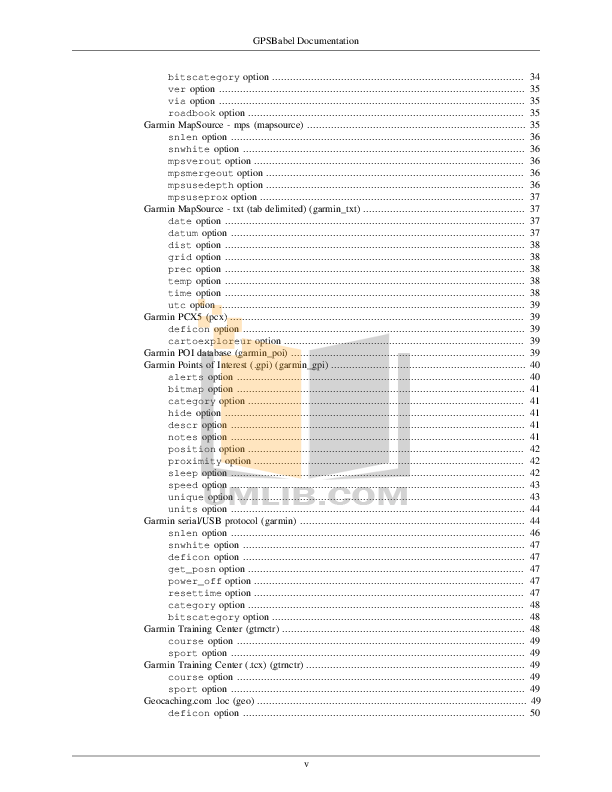
DIAGNOSTICS %s not foundĬan't find the gpsbabel executable. Throws appropriate errors if gpsbabel fails. The supplied options are passed unmodified to system(), for example: $babel->direct(qw(-i gpx -f somefile.gpx -o kml -F somefile.kml)) Invoke gpsbabel with the supplied options. If the formats have nothing in common an error will be thrown. convert attempts to convert anything that can be both read by the input format and written by the output format. Gpsbabel treats waypoints, tracks and routes as separate channels of information and not all formats support reading and writing all three. For applications that must run unattended or where the user doesn't have this kind of control you should make the choice of filter explicit by passing in_format and/or out_format options to read, write and convert as appropriate. In general then you should only use format guessing in applications where the user will have the opportunity to select a format explicitly if an unambiguous guess can't be made. This means that GPS::Babel will confidently guess that the format for a file called something.wpt is xmap even if the file contains compegps data. wpt files but gpsbabel (currently) reports that the only format explicitly associated with the. That raises the spectre of a program that works now breaking in the future.Īlso some formats support a particular extension without explicitly saying so - for example the compegps format supports. Because new formats are being added to gpsbabel all the time it's possible that a format that can be guessed today will become ambiguous tomorrow. While this can be convenient there is an important caveat: if more than one format is associated with a particular extension GPS::Babel will fail rather than risking making the wrong guess. This makes it possible to, for example, create tools that bulk convert a batch of files choosing the correct format for each one.

GPS::Babel queries the capabilities of gpsbabel and can use this information to automatically choose input and output formats based on the extensions of filenames. This information is available as a perl data structure which may be used to construct a dynamic user interface that reflects the options available from the gpsbabel binary. GPSBabel is able to describe its built in filters and formats and enumerate the options they accept. For more complex cases a passthrough method ( direct) passes its arguments directly to gpsbabel with minimal preprocessing. It does however provide for simple access to the most common operations. This module doesn't attempt to provide an API wrapper around all these options. GPSBabel supports many options including arbitrary chains of filters, merging data from multiple files and many format specific parameters. This module provides a (thin) wrapper around the gpsbabel binary making it easier to use in a perlish way.
#GPSBABEL INSTRUCTIONS SERIAL#
In addition to file conversion it supports upload and download to a number of serial and USB devices. GPS data have imposed upon us, it returns to us the ability toįreely move our own waypoint data between the programs and hardwareĪs I write this gpsbabel supports 96 various GPS related data formats. Tower of Babel that the authors of various programs for manipulating GPS unit such as those from Garmin and Magellan. f in.anr -f in2.anr -o an1,type=road -F out.an1)) DESCRIPTIONįrom : GPSBabel converts waypoints, tracks, and routes from one format toĪnother, whether that format is a common mapping format likeĭelorme, Streets and Trips, or even a serial upload or download to a $babel->direct(qw(gpsbabel -i saroute,split $babel->convert('points.wpt', 'points.gpx') # Convert a file automatically choosing input and output My $data = $babel->read('route.ozi', 'ozi') # Read an OZIExplorer file into a data structure This document describes GPS::Babel version 0.11 SYNOPSIS use GPS::Babel GPS::Babel - Perl interface to gpsbabel VERSION


 0 kommentar(er)
0 kommentar(er)
